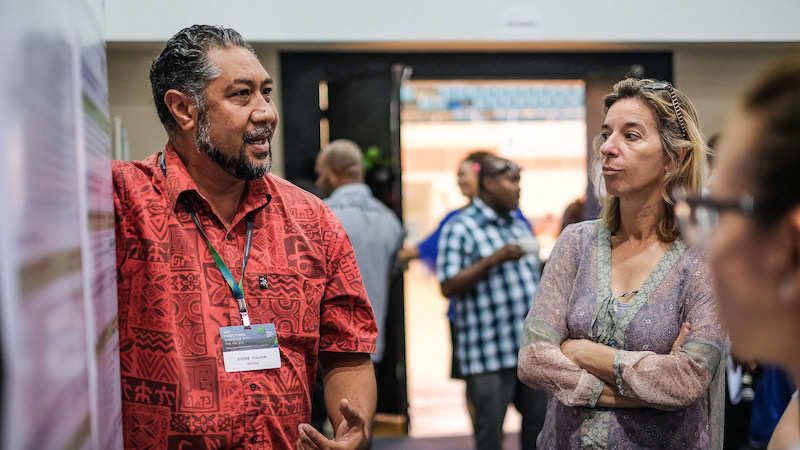A climate finance crunch is casting a shadow over talks on how the Paris Agreement will work, due to be finalised this year.
The UN’s flagship Green Climate Fund (GCF) hit a crisis last month, as a board meeting collapsed without agreement on a process to raise fresh funds. Project bids were left in limbo as relations between rich and poor country representatives turned toxic.
It was “really disappointing” for millions of vulnerable people depending on that support, a lead negotiator for the world’s poorest countries told Climate Home News.
“We all have financial gaps and the gaps are becoming bigger and bigger with time,” said Ethiopia’s Gebru Jember Endalew, chair of the least developed countries group at the UN. “It is going to be difficult to deliver our [national climate plans] and what we want to achieve.”
It risks hampering efforts to advance the rulebook for the Paris Agreement at an extra session of talks in Bangkok next week, he added. The developing world has emphasised progress on the rulebook must be “balanced”. That means clarifying how rich nations will deliver the money they promised, as well as developed country priorities like standards for transparent carbon accounting.
“We are moving faster on other issues but when it comes to finance, it is delayed. Finance is key to deliver the rulebook,” said Endalew.
UN climate fund chief resigns for personal reasons while board meeting collapses
Diplomats have six days in Bangkok to try to condense a pile of informal notes into a structured text in legal language. The output will form the basis for final talks in Katowice, Poland in December.
Troubles at the GCF, a totem of rich-poor cooperation on climate change, are “not helpful” to this task, said Benito Müller, an Oxford-based specialist in training developing country negotiators. “If the replenishment becomes a failure – we won’t know that for at least a year – then we are in really deep trouble.”
The fund’s deputy executive director Javier Manzanares said recently in an op-ed on the Thomson Reuters Foundation (TRF) website that moving cash through the GCF was an “essential element” of a strong deal in Poland. He also pointed to the successes of the fund, including approving $1bn worth of funding at the board meeting before last.
One of its problems shows no sign of resolution: Donald Trump’s refusal to hand over a promised $2 billion contribution.
Other problems are structural. The board was designed to give an equal say to recipients on how climate cash gets spent. The flip side is that members are representing constituencies that often have competing or conflicting interests, making consensus on policy decisions elusive.
“The key systemic problem is that people on the board do not act as one board,” said Müller. “The toxicity is such that there is very little appetite to assume that the other side is working in good faith. Without that, it becomes very difficult.”
Müller proposes some changes to the way it is run to foster a more collegiate atmosphere, ahead of its next meeting in Bahrain in October. These could be as simple as introducing speaking restrictions to cut into an existing “airtime oligarchy”.
“If [the Bahrain board meeting] moves reasonably smoothly, all the doom and gloom right now will be alleviated,” said Müller.
More than ever, the world needs great climate coverage
Become a CHN patron for as little as $7 per month to help us keep bringing you the most in-depth climate politics news from around the world.
We have set up a Patreon account. It’s a simple, safe and easy way for you to become part of a community that will secure and guide our future.
Thank you!
Similarly in the NDCi.global blog for green finance professionals, Ian Callaghan suggests depoliticising project approvals and appointing an experienced fund manager – not a climate negotiator – to head the secretariat.
A number of high-profile officials have expressed the importance of restoring faith in the fund: UN climate chief Patricia Espinosa, Paris Agreement architect Laurence Tubiana and Frank Rijsberman, director of the Global Green Growth Institute (GGGI).
Espinosa urged finance ministries to get involved, while Tubiana called for the appointment of a “strong” executive director.
Former UN secretary general Ban Ki-moon, now president of the GGGI, was the latest to air his concerns this week. “[The fund] should be more effective; it should be more agile,” he told TRF. “Otherwise if you have to wait many months or years to get the funding, by that time we will miss the opportunity to mitigate and adapt (to climate change).”
This article was amended on 3 September to correct the roles of Ban Ki-moon and Frank Rijsberman
